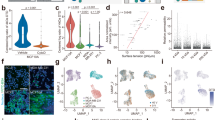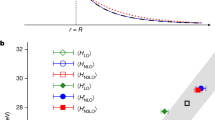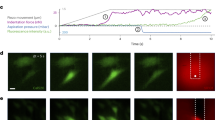Abstract
ONE of the effects of penicillin on susceptible bacteria is to cause a change in electrostatic charge which may be measured in terms of potentials, and which it has been suggested may be used quantitatively for assaying solutions of penicillin1,2,3. So early as 1938, Loiseleur4 studied changes that occur in electrostatic charge during proteolysis, such as would be expected during lysis of bacterial cells. Similar changes in charge resulting in development of an electrostatic field can be shown on penicillin assay plates by treatment with electronegative or electropositive colloids suspended in buffers at pH. levels above or below the isoelectric range of the nucleoproteins.
This is a preview of subscription content, access via your institution
Access options
Subscribe to this journal
Receive 51 print issues and online access
$199.00 per year
only $3.90 per issue
Buy this article
- Purchase on Springer Link
- Instant access to full article PDF
Prices may be subject to local taxes which are calculated during checkout
Similar content being viewed by others
References
Dorfman, V. A., Nature, 153, 169 (1944).
Dorfman, V. A., and Kastorskaya, T. L., Mikrobiologia, 15, 69 (1946).
Dorfman, V. A., Moldavskaya, E. A. M., Kastorskaya, T. L., and Zasypkina, P. S., Ann. Rev. Soviet Med., 3, 500 (1946).
Loiseleur, J., Ann. Ferment, 4, 220 (1938).
Goyan, F. M., Dufrenoy, J., Strait, L. A., and Pratt, R., J. Amer. Pharm. Assoc, Sci. Ed., 36, 65 (1947).
Pratt, R., and Dufrenoy, J., J. Bact., 55, 525 (1948).
Cottrell, H. T., Nature, 159, 748 (1947).
Porter, R. H., Durrell, M., and Romm, H. J., Pl Physiol., 22, 149 (1947).
Carr, J. G., Nature, 156, 143 (1945).
Author information
Authors and Affiliations
Rights and permissions
About this article
Cite this article
DUFRENOY, J., PRATT, R. Evidence for an Electrostatic Field on Penicillin Assay Plates. Nature 161, 849–850 (1948). https://doi.org/10.1038/161849a0
Issue Date:
DOI: https://doi.org/10.1038/161849a0
Comments
By submitting a comment you agree to abide by our Terms and Community Guidelines. If you find something abusive or that does not comply with our terms or guidelines please flag it as inappropriate.



